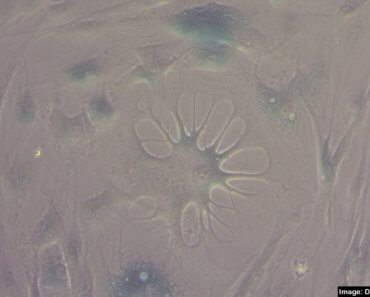University of Exeter scientists have developed new compounds that can reverse the aging of human cells.
Naturally, people age as their cells deteriorate and can no longer effectively regulate gene expression within the cells by turning genes on and off.
In this process, deteriorated cells can spread their effects to other cells, often leading to age-related diseases, such as heart attacks, strokes, dementia, cancer and more.
While researchers previously thought that each age-related disease had different causes, recent studies have now shown that they are all caused by the deterioration of a few mechanisms in human cells.
Building on their prior year’s study that successfully rejuvenated old cells in a laboratory, researchers at Exeter wondered if they could fight off age-related diseases by precisely focusing on rejuvenating mitochondria, the power generator in human cells.
“As human bodies age, they accumulate old (senescent) cells that do not function as well as younger cells,” Lorna Harries, an associate professor of molecular genetics at Exeter and co-author of the study, said in a statement.
“This is not just an effect of ageing — it’s a reason why we age. The compounds developed at Exeter have the potential to tweak the mechanisms by which this ageing of cells happen.”
The research paper is published in the journal Aging.
The study
Each human gene can make more than one product, and splicing factors (a component of cells) make the decision about which of these products are made.
In this new study, the researchers used three compounds — AP39, AP123 and RT01 — to specifically target two splicing factors, SRSF2 or HNRNPD, that play a key role in determining how and why our cells change with aging.
In a laboratory study of endothelial cells, which line the inside of blood vessels, the researchers injected small quantities of hydrogen sulfide directly into the mitochondria of old cells.
This helped mitochondria re-generate the “energy” needed for survival and to reduce deterioration.
“Our compounds provide mitochondria in cells with an alternative fuel to help them function properly,” Matt Whiteman, a professor of experimental therapeutics at Exeter and co-author of the study, said in a statement.
“Many disease states can essentially be viewed as accelerated ageing, and keeping mitochondria healthy helps either prevent or, in many cases using animal models, reverse this.”
In the test sample, each compound helped the number of old blood vessel cells to decrease by 40 to 50 percent.
“Nearly half of the aged cells we tested showed signs of rejuvenating into young cell models,” Harries said in a statement.
Aging gracefully
While obsession over youth can be dangerous, the researchers suggest there is a difference between expanding healthspan and quality of life and merely extending lifespan.
“Lifespan extension is what it says on the tin. Healthspan is the percentage of someone’s life that is spent with no diseases that compromise health or quality of life. What we are trying to do is to extend healthy life, not lifespan per se,” said Harries.
The researchers’ goal, according to Harries, was strictly to help people stay healthier for longer.
Although their findings suggest the possibility of future treatments for age-related diseases, the researchers believe there are a lot more steps left until treatments become available to patients.
“We are still a way off this yet. I would envisage that eventually they would be used as anti-degenerative drugs to target the diseases of ageing. This is what we are working towards,” said Harries.
But their study is definitely a step forward to better understanding of age-related diseases.
“We used to think age-related diseases like cancer, dementia and diabetes each had a unique cause, but they actually track back to one or two common mechanisms,” Harries said in a statement.
“This research focuses on one of these mechanisms, and the findings with our compounds have potentially opened up the way for new therapeutic approaches in the future.”
According to Harries, her lab plans to continue studying whether these findings would apply in other tissues as well. And if not, they will look at what optimum concentrations are needed to draw out effects and whether the effects happen systemically, and not just in cells.



